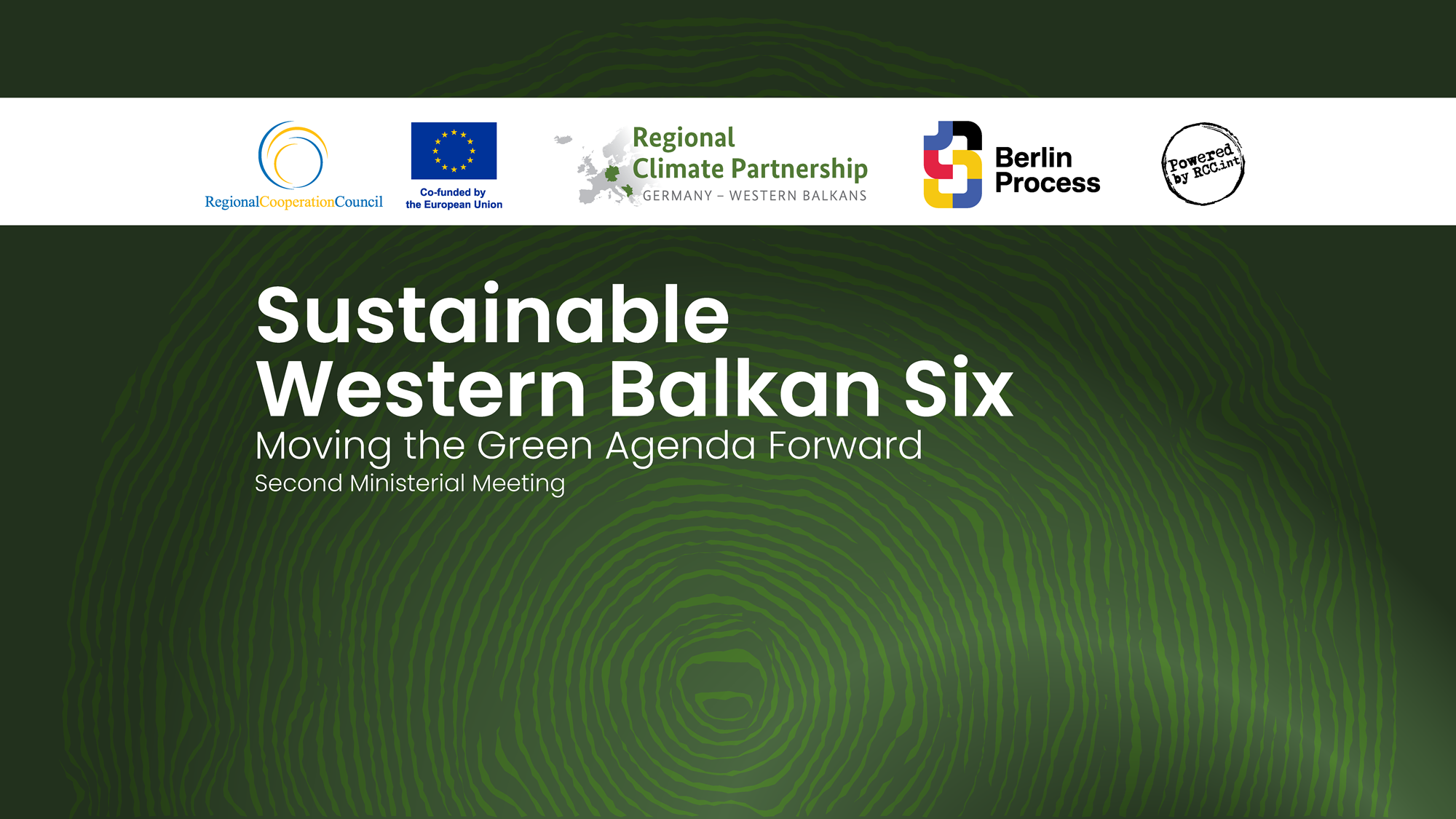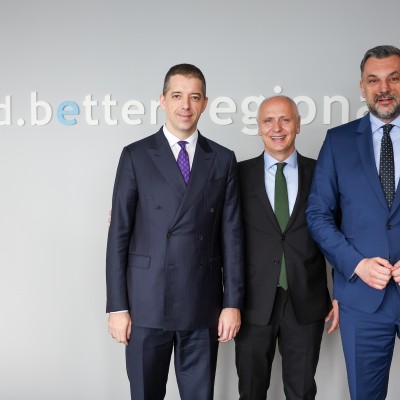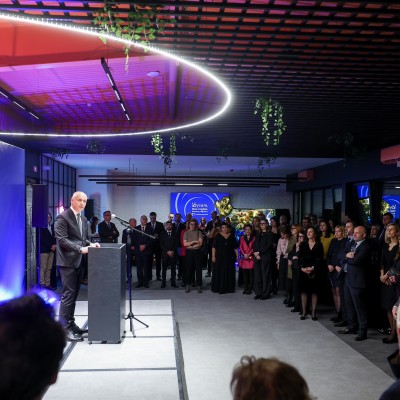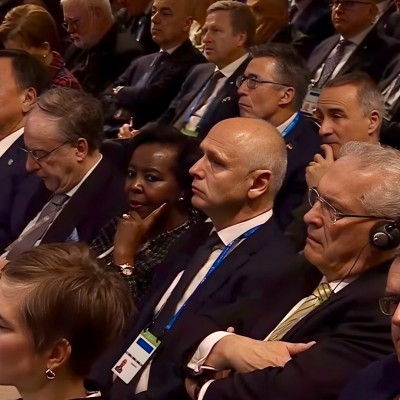Second Ministerial Meeting on the Green Agenda for the Western Balkans Six in Dubrovnik Tomorrow
13 October 2025

Second Ministerial Meeting on the Green Agenda for the Western Balkans Six taking place in Dubrovnik on 14-15 October 2025 (Design: RCC/Sara Miftari)
Sarajevo/Dubrovnik - The Regional Cooperation Council (RCC), in cooperation with the Federal Ministry for Economic Cooperation and Development of Germany (BMZ), with the support of the European Commission, and under the United Kingdom’s Chairmanship of the 2025 Berlin Process and under the umbrella of the Regional Climate Partnership, is organising the Second Ministerial Meeting on the Green Agenda for the Western Balkans (GAWB), on 14 October 2025 in Dubrovnik.
The meeting will bring together ministers of environment and sustainable development from the Western Balkans Six, along with representatives of the European Commission, Germany, the United Kingdom, Croatia, and regional and international partners, to discuss the next steps in implementing the GAWB, a shared framework that aligns the region with the European Green Deal and paves the way toward a sustainable and climate-neutral future.
Welcoming remarks will be delivered by Amer Kapetanović, RCC Secretary General; Jan Dusik, Deputy Director-General at European Commission’s DG CLIMA; Johann Saathoff, Parliamentary State Secretary at the Ministry for Economic Cooperation and Development of Germany; Javed Patel, Ambassador of United Kingdom to Croatia; and Marija Vučković, Minister of Environmental Protection and Green Transition of Croatia.
Following the ministerial panel on advancing the GAWB, WB6 ministers are expected to endorse Dubrovnik declaration, whose integral par are four key regional documents:
• Revised GAWB Action Plan 2025–2030;
• WB6 Climate Adaptation Roadmap;
• Regional Action Plan on Plastic Pollution Prevention, including Marine Litter; and
• Outline of the WB6 Biodiversity Strategic Plan to 2030.
By endorsing these documents, the region moves from planning to implementation, with ambitious, measurable targets in energy transition, climate resilience, circular economy, depollution, and nature protection.
****
The meeting takes place within the framework of the 2025 Berlin Process and serves as the region’s key annual forum for reviewing progress and defining next steps in implementing the Green Agenda for the Western Balkans (GAWB). Participants will discuss concrete measures to strengthen climate resilience, reduce plastic pollution, preserve biodiversity, and accelerate the green transition in line with European standards.



